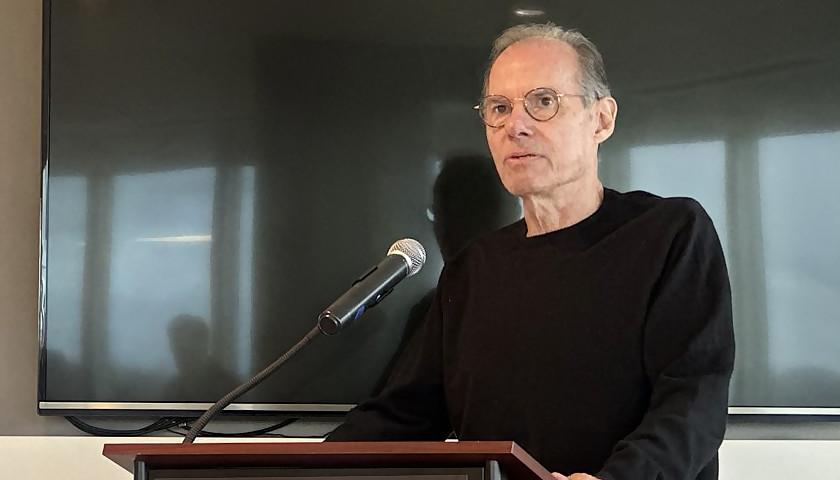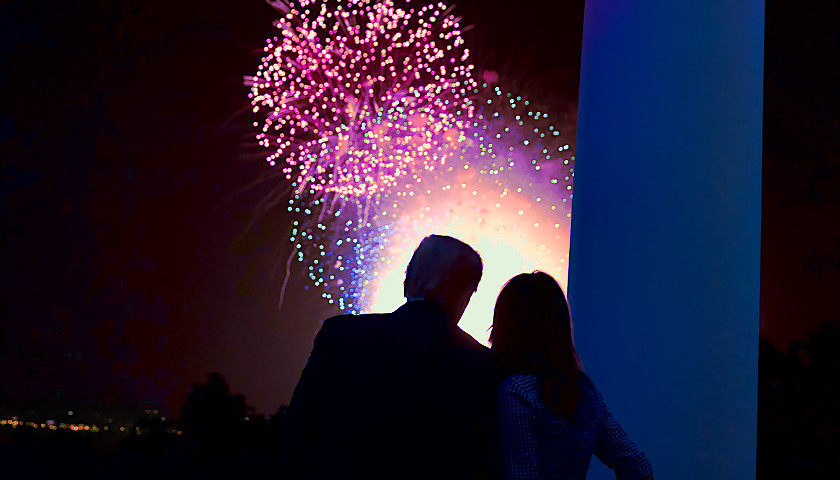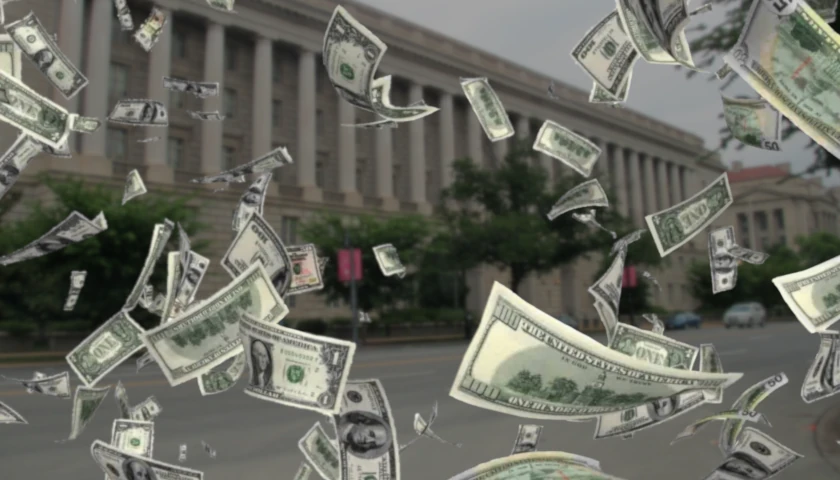by Greg Piper
Faculty at public universities in nine states may have fewer speech protections than they assume following federal appeals court rulings against professors on the political right and left who were punished for perceived lack of collegiality – strong words short of harassment.
But a private university has egg on its face after taking seven months to allegedly clear a professor of wrongdoing for telling anti-Israel campus protesters they are “ignorant” and “Hamas are murderers,” despite having immediate access to both viral video and its own surveillance.
Five months after the Supreme Court rejected Stephen Porter’s case against North Carolina State University, which the 4th U.S. Circuit Court of Appeals tossed because his criticism of diversity, equity and inclusion in his program was unrelated to “scholarship or teaching,” the 6th Circuit refused to reconsider its ruling against professors who called a colleague racist.
The May 16 ruling against Tennessee Tech professors Julia Gruber and Andrew Smith, followed by a denial of panel rehearing June 18, is marked “not recommended for publication” – meaning it shouldn’t be cited as precedent – and it’s not posted on the 6th Circuit’s free opinions database, only the pay-per-page PACER service.
It apparently went unnoticed for a month, with UCLA First Amendment professor Eugene Volokh flagging it June 20 after the ruling was posted to the legal research service Westlaw.
With SCOTUS passing on the NCSU case and uncertain to review the similar Tennessee Tech ruling next term, public university administrators in Kentucky, Maryland, Michigan, North Carolina, Ohio, South Carolina, Tennessee, Virginia and West Virginia appear to have a road map to sanction professors for speech of any ideological flavor without drawing lawsuits.
“The allowance for censorship and sanctions for speech ‘likely to cause disruption’ would gut free speech protections on campus,” George Washington University law professor Jonathan Turley wrote in an analysis of the 6th Circuit ruling.
The unanimous three-judge panel “suggests that the ability of the university to crack down on the speech was magnified by the fact that others might be particularly interested in their views or exposed to them,” Turley said. “It is enough that it threatened the tranquility of campus and the collegiality of the faculty.”
Porter alleged NCSU “intentionally and systematically … hollow[ed] his job out from the inside” because Porter (pictured above) questioned a diversity-related question on course evaluations, mocked a faculty search committee chairperson for recruiting a black candidate who had been sanctioned for financial misconduct and on his blog called a major academic conference a “woke joke.”
His loss at the 4th Circuit drew surprisingly little attention in the First Amendment community, with only one friend-of-the-court brief asking SCOTUS to take his case. NCSU opposed it.
“Routine campus debates … are now grounds for ‘cancellation’ in the ongoing culture wars,” the Foundation for Individual Rights in Education, First Amendment Lawyers Association and Princeton politics professor Keith Whittington wrote in the joint brief.
“Limiting First Amendment protection for professors will make them vulnerable to political pressure from right and left alike,” they said.
Because SCOTUS hasn’t answered how academic speech fits into its 2006 Garcetti ruling on the limits of speech rights for public employees, several appeals courts have reached different conclusions on whether the ruling covers academic speech or even what it means, they said.
Porter’s speech, for example, “appears no less academic than statements by professors deemed protected by other circuits” but the 4th Circuit called it “plainly” non-academic.
The 6th Circuit granted summary judgment to Provost Lori Bruce in a breezy 7-page opinion, approving her sanctions on professors Gruber and Smith.
Smith suggested they design a flyer singling out professor Andrew Donadio for advising a campus “hate group” because he “clapped loudly” at a school board meeting when members declined to consider replacing their Redskins mascot, Inside Higher Ed reported.
Turning Point USA is “where racist students can unite” to harass and even “terrorize” nonwhites and other groups, especially teachers through its Professor Watchlist dossiers, so Donadio is “on our list,” the flyers read. “Your hate & hypocrisy are not welcome” on campus.
Bruce banned the duo from advising student organizations, study-abroad activities and “non-instructional faculty assignments,” and made them ineligible for salary increases for a year. They also had to take sensitivity training, the trial court summarized.
Tennessee Tech didn’t dispute that the duo’s speech “was a matter of public concern” but correctly said distributing flyers “threatened to, and did, impair harmony among coworkers and otherwise disrupt TTU’s operations and mission,” the three-judge panel said.
The “manner” of the duo’s speech “decreased its expressive value,” even if “some accusations may have had basis in fact,” the order said.
They posted flyers “in an academic building at a time they knew students would be on campus for class and posted an additional flyer the next day,” and “chose to use TTU’s own property as the billboard for their speech,” not a Facebook page or letter to the editor, the panel said.
The duo also “insinuated” TPUSA chapter members were racist, which “harmed these students’ educations,” the ruling said. One member missed class “because of the fallout” and other current or potential members “might reasonably fear the potential treatment they would receive” in a Gruber or Smith class.
The private University of Southern California, by contrast, reportedly cleared Jewish economist John Strauss of discrimination, harassment and fostering an unsafe environment, as student complaints alleged, after two exchanges with anti-Israel activists as he crossed campus Nov. 9.
USC reviewed the two-minute viral video and “Trojan Cam” surveillance, Strauss and his attorney Samantha Harris told the Los Angeles Times. Strauss said he shouted “Israel forever, Hamas are murderers” in response to calls to destroy Israel as he was heading to teach a class.
Student protesters claimed Strauss used his authority to intimidate them and “desecrat[ed]” their rolls of paper naming Palestinian victims of Israel’s Gaza offensive, but surveillance showed that if he stepped on the paper at all, it was not “deliberate,” Harris said.
As Strauss returned to his office, recorded by protesters, a student yelled “Professor Strauss, shame on you.” He responded “No, shame on you” and called protesters “really ignorant,” reiterated “Hamas are murderers” and “I hope they all are killed.”
The Times reported in December, when USC lifted its campus ban on Strauss and let him teach undergraduate classes online again, that some versions of the viral video were edited to replace his reference to Hamas with all Palestinians.
“Living under a cloud for seven months is not nothing” and chills “faculty’s willingness to express themselves on matters of public concern,” Harris said. The Foundation for Individual Rights and Expression, where Harris previously worked, said the lengthy investigation contradicted USC’s contractual protections against “institutional censorship or discipline.”
4/ WHY WE CARE: USC’s policies promise to protect faculty speech from institutional censorship or discipline — even when others disagree or feel offended. But for Prof. Strauss, voicing his opinion got him a 1mo. campus ban and a 7mo. investigation.https://t.co/GVFZusCBpf
— FIRE (@TheFIREorg) June 21, 2024
“We are unable to discuss any individual cases because of the confidential nature of personnel matters,” a USC spokesperson told “Just the News.” The Times reported the university didn’t challenge the portrayal of its findings by Strauss and Harris.
“USC takes allegations of harassment and discrimination seriously,” the spokesperson said when asked why the investigation took so long and its response to FIRE’s criticism.
“We follow our university policies and processes when reviewing them, including our Nondiscrimination Statement, which prohibits harassment and discrimination, including on the basis of shared ancestry and ethnic characteristics, and our Policy on Prohibited Discrimination, Harassment, and Retaliation.”
– – –
Greg Piper is a reporter for Just the News.
Photo “Stephen Porter” by Stephen Porter.








